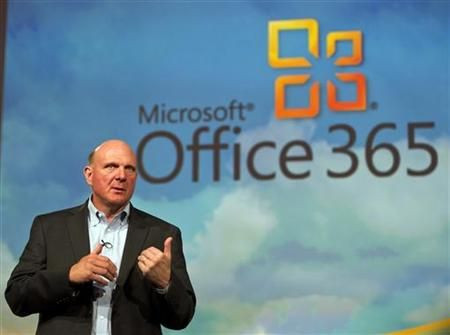Microsoft Profit Meets Street View, Windows Weak

Microsoft Corp's quarterly profit rose 6 percent, meeting Wall Street's modest expectations, helped by strong sales of its popular Office applications package, but limited by only slight gains from its flagship Windows operating system.
Windows sales edged up only 2 percent, in line with limp personal computer sales last quarter, breaking the streak of three straight quarters of declining sales, as compared to the year before. But it fell short of some analysts' hopes.
We still had Windows miss again, although not by nearly as much as it has the last couple quarters, said Brendan Barnicle, an analyst at Pacific Crest Securities.
They were just in line on EPS, which typically Microsoft beats, said Barnicle. Q1 is seasonally not a big quarter for Microsoft, and this was no exception.
The brightest spot for the world's largest software company was an indication that its perennially money-losing online services unit -- including the MSN Internet portal and Bing search engine -- may have turned a corner.
The unit lost $494 million in the quarter, the lowest loss in the last seven quarters, slowing the flood of red ink that has cost Microsoft more than $5 billion since it launched Bing in mid-2009, as it invests heavily to catch up with Google Inc.
Microsoft's shares, which have traded in the $20-$30 range for the last decade, fell 0.5 percent in after-hours trading, to $26.87. They closed at $27.04 on Nasdaq.
The Redmond, Washington company reported fiscal first-quarter net profit of $5.74 billion, or 68 cents per share, up from $5.41 billion, or 62 cents per share, a year ago.
That met Wall Street's average estimate, according to Thomson Reuters I/B/E/S. It is the first time in 10 quarters that Microsoft has not exceeded the average estimate.
Overall sales rose 7 percent to $17.37 billion, helped by its Office product, which remains popular with businesses even in the difficult global economy.
© Copyright Thomson Reuters {{Year}}. All rights reserved.



















